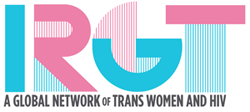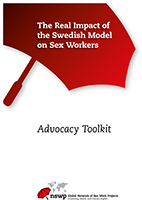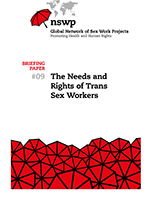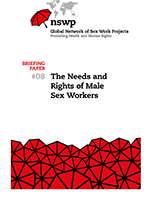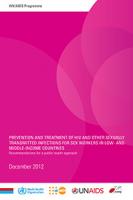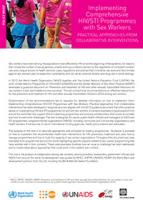The Trans Sex Work briefing paper focuses on the issues and needs identified by trans sex workers (TSW) as disclosed in NSWP forums including an online questionnaire and face-to-face focus groups. The issue of intersectionality is brought into focus with the aim of giving context to the community of TSW before looking at the needs and rights of trans sex workers. Legal situations are then discussed, noting how legislative systems can have an impact on the lives and work of TSW worldwide. Discussion then moves to look at the issues and needs of TSW, beginning with a discussion on violence before looking at how discrimination impacts access to education and employment, housing, justice, and appropriate health care services. The paper concludes by drawing attention to the need to support the advocacy and activism of TSW groups around the world in challenging the needs identified and offering recommendations for those who design and implement policy and programmes, and those who represent and work directly with TSW. The paper also includes examples of NSWP member groups’ efforts to mobilise communities of TSW to advocate for trans sex worker rights, showing activism that is being carried out by the community.

